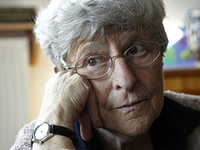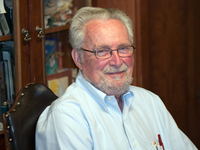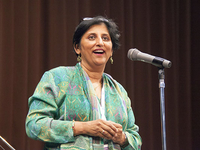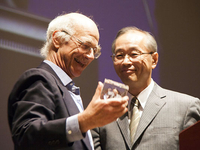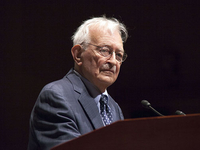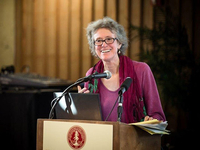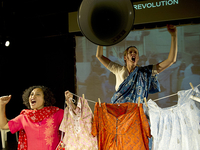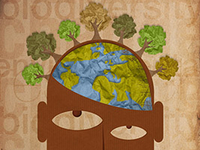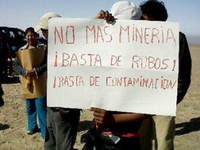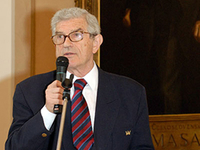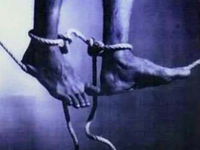GD 4.3 - September 2014
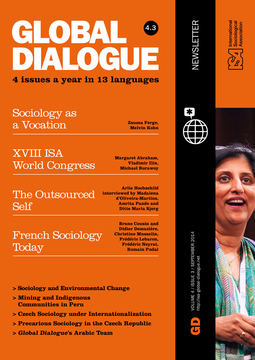
Global Dialogue is available in multiple languages!
Select the language to download the issue.
Editors:
Michael Burawoy.
Associate Editor:
Gay Seidman.
Managing Editors:
Lola Busuttil, August Bagà.
Consultants:
Ana Villarreal.
Media Consultant:
Gustavo Taniguti, José Reguera.
Consulting Editors:
Margaret Abraham, Markus Schulz, Sari Hanafi , Vineeta Sinha, Benjamin Tejerina, Rosemary Barbaret, Izabela Barlinska, Dilek Cindoğlu, Filomin Gutierrez, John Holmwood, Guillermina Jasso, Kalpana Kannabiran, Marina Kurkchiyan, Simon Mapadimeng, Abdul-mumin Sa’ad, Ayse Saktanber, Celi Scalon, Sawako Shirahase, Grazyna Skapska, Evangelia Tastsoglou, Chin-Chun Yi, Elena Zdravomyslova.
REGIONAL EDITORS
Arab World: Sari Hanafi , Mounir Saidani.
Brazil: Gustavo Taniguti, Andreza Galli, Renata Barreto Preturlan, Ângelo Martins Júnior, Lucas Amaral, Rafael de Souza, Benno Alves.
Colombia: María José Álvarez Rivadulla, Sebastián Villamizar Santamaría, Andrés Castro Araújo, Katherine Gaitán Santamaría.
India: Ishwar Modi, Rajiv Gupta, Rashmi Jain, Jyoti Sidana, Ritu Saraswat, Nidhi Bansal, Uday Singh.
Iran: Reyhaneh Javadi, Najmeh Taheri, Saghar Bozorgi, Hamidreza Rafatnejad, AbdolKarim Bastani, Tara Asgari Laleh, Faezeh Khajezadeh.
Poland: Krzysztof Gubański, Kinga Jakieła, Kamil Lipiński, Przemysław Marcowski, Mikołaj Mierzejewski, Karolina Mikołajewska, Adam Müller, Patrycja Pendrakowska, Zofi a Penza.
Romania: Cosima Rughiniș, Ileana-Cinziana Surdu, Telegdy Balazs, Adriana Bondor, Ramona Cantaragiu, Miriam Cihodariu, Mihai Bogdan Marian, Alina Stan, Elena Tudor, Cristian Constantin Vereș.
Russia: Elena Zdravomyslova, Anna Kadnikova, Asja Voronkova.
Taiwan: Jing-Mao Ho.
Turkey: Yonca Odabas, Günnur Ertong Attar, İlker Urlu, Zeynep Tekin Babuç, Hüseyin Odabaş.
GD 4.3 - September 2014
Editorial
The ISA Goes from Strength to Strength
This summer marked the International Sociological Association’s 18th World Congress of Sociology held in Yokohama (July 13-19). Meticulously organized by the Japanese Local Organizing Committee in collaboration with the ISA Secretariat, 6,087 registrants met for the biggest event in the history of the association. The very scale of the Congress, with over 1,100 separate sessions, led some to wonder whether the ISA was perhaps getting too big, an issue highlighted by Russian sociologist, Vladimir Ilin, in his report for Global Dialogue. In Yokohama the new Executive Committee was elected with Margaret Abraham at the helm. In this issue of Global Dialogue, she unveils her exciting agenda to highlight sociology’s contribution to social justice, with a special focus on gender violence.
In this issue we publish five articles on the state of French sociology. They underline its continued strength in both public and policy spheres. At the same time the authors discuss the bureaucratization and specialization of research, professionalization through the expansion of peer-review, the growing pressure to publish in English as well as the shortage of stable employment. France provides an interesting contrast with Czech sociology, the subject of a further two articles, where pressures for internationalization and orientation to Western sociology clash with counter-pressures for accountability to local issues. This tension is acutely felt in semi-peripheral countries that are expected to orient themselves to metropolitan centers of research.
This issue of Global Dialogue opens with two giants of sociology, writing about “sociology as a vocation” from the standpoint of their own careers. Zsuzsa Ferge reflects on her own history of contesting first the old Hungarian regime of state socialism and then the new regime that succeeded it, contestation from the standpoint of the poor and the marginalized, while Melvin Kohn describes the history of his pioneering cross-national research into personality and social structure. We also feature an interview with Arlie Hochschild, another pioneer, this time of emotional labor and the commodification of feelings, and, following the same theme, Amrita Pande and Ditte Bjerg describe their theatrical performance of surrogacy, the subject of Pande’s research in India. Performed across Europe to much acclaim, theirs is indeed a novel form of public sociology!
I write this editorial from Sweden, where the Nordic Sociological Association is holding its biannual meeting. Throngs of young sociologists have assembled here in Lund to discuss such pressing issues as the decline of the Scandinavian welfare state and the challenges posed by successive waves of immigration. Scandinavia, particularly Sweden, has accepted many, fleeing the war zones of the world but, as investigations show, their assimilation has been thwarted by discrimination in access to welfare, education, and jobs. The humanitarian mission has its underside that sociologists have been quick to reveal.
Michael Burawoy, editor of Global Dialogue
Global Dialogue can be found in multiple languages.
Submissions should be sent to globaldialogue@isa-sociology.org.

